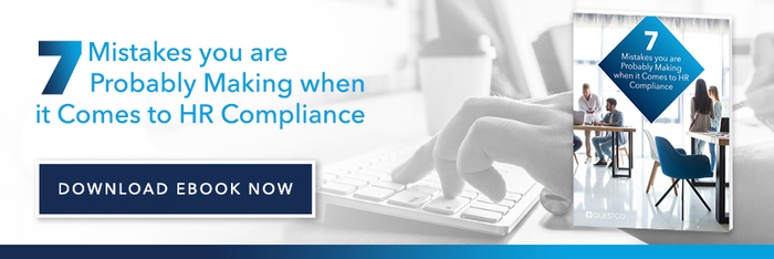
Recently, many restaurateurs in the City of Austin, Texas were hit with audits to investigate their compliance with the Fair Labor Standards Act (FLSA). Shockingly, 95 percent of these audits revealed failures to comply with the relevant regulations properly. As a group, the restaurants had to pay over $330,000 in back wages, and more fines may still be on the way.
One of the reasons so many companies are found to be in violation is that regulations are always changing. Not only do they change on the federal level, but they also change on the state and local level as well. This makes it easy for mistakes to be made. Those mistakes are often very costly when the relevant regulatory bodies discover them.
The Burden of Regulatory Compliance
Even if your company has done nothing wrong, responding to an FLSA audit takes money and time. That amount increases if your company is hit with a private lawsuit related to your labor practices.
The reputation of your company will also be negatively affected, even if you win your case. In today's world, plaintiffs often go to the news faster than they go to the courts – and the news is very likely to run the story as its latest "outrage" piece. The effect can be devastating to your company's ability to get more sales or leads.
The fact that state laws differ from each other makes this problem even harder to avoid. For example, if your company is in Florida, there are no state laws related to providing breaks or meal times (federal law must still be followed). However, if it's in New York State, you'll find that there is an extensive body of local laws governing this issue. It includes a requirement for a meal break of at least 30 minutes at some time between 11 A.M. and 2 P.M. for day shift workers. There must be an additional long meal break for those scheduled to work later than 7 P.M. (which must take place around dinner hours).
Local employment laws also come into play. Some cities have their own minimum wage laws; others regulate what can be asked on employment applications. There is a large patchwork of these regulations, and if you have locations in more than one city, compliance can become quite confusing.
Compliance Costs Your Company Even if You Have No Violations
Staying abreast of all of the regulatory changes that apply to your company's location(s) can require many hours of work time. This is expensive, and it's even more costly when in-house HR managers are doing the work. Often, these tasks compete with ones that are even more important to your company. Yet, it is one of the most critical aspects of risk reduction.
One of the best ways to avoid this problem is to work with an HR outsourcing partner, otherwise known as a Professional Employer Organization (PEO). These companies have professionals who monitor employment laws relevant to your company. They then make sure you are up to speed on everything that is relevant to your operations and workers. This allows in-house employees to be dedicated to the other important aspects of the business. At the same time, company owners and operators can rest easy knowing that their compliance issues are well-handled.
In Austin, Texas, small compliance issues lead to payouts of $330,000 in back wages. These figures only include violations of the Fair Labor Standards Act. Federal, state, and local regulations change constantly. The best way to stay compliant is to combine the dedication of your HR team to the expertise of your HR outsourcing partner.
.jpg)
Jason Randall
Jason L. Randall is the CEO of The Questco Companies. He regularly speaks on topics related to strategy, growth, and organizational performance.



